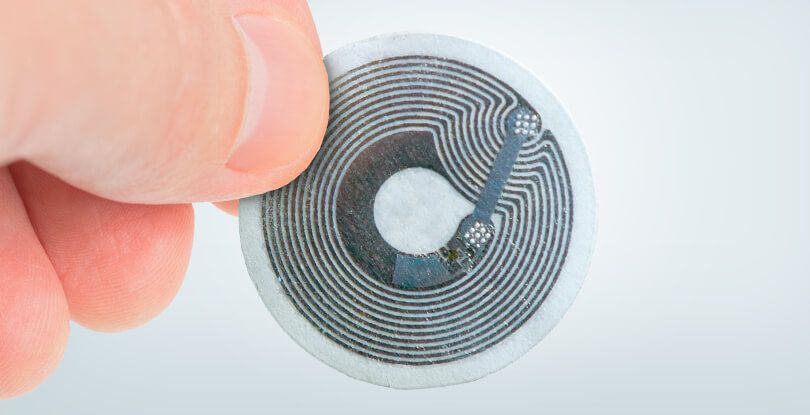
How to Dissolve a Black Market Worth Billions

Since Nike's 1984 signing of Michael Jordan birthed the modern sneaker industry—known for a $6 billion resale industry (expected to grow to $30 billion by 2030)—sneakers have been on a collision course with Web3.
As the industry has rapidly grown during the past decade, the number of fanatical collectors, known as "Sneakerheads," has exploded. The most dedicated have used the industry's growth as an opportunity to become entrepreneurs, turning their passion into a full-time job. Some have elected to start sneaker reselling businesses, primarily online as an individual or as a brick-and-mortar location with a team on staff. Others have become online content creators focused on reviews and other sneaker content, started sneaker cleaning product companies, built custom sneaker design studios, and much more.

Whether a sneaker industry participant earns millions of dollars in profit per year or is simply someone with a couple of pairs of rare Air Jordans, everyone is linked together by one shared problem: the counterfeit sneaker epidemic.
This problem is the catalyst that will ultimately bring about the propagation of Web3 technology across the entire industry and lead to a new golden era for collectors, entrepreneurs, and average fans alike.
No One Likes Fake Shoes

With the meteoric rise of rare sneaker secondary market prices, people are highly incentivized to attempt to sell fake sneakers (which look and feel realer than ever before) at authentic sneaker prices to pocket a huge take-home profit.
As a sneakerhead myself, the thought of spending hard-earned money on an epic pair of shoes that turn out to be fake is agonizing. My fear, shared by many sneakerheads globally, led to the rise of companies like StockX in 2015 and services like eBay's "Authenticity Guarantee" in 2020. While these services provide some degree of peace of mind to purchasers with the guarantee of authenticity, they're far from foolproof solutions. Complaints of fakes slipping through the verification process are posted online on a weekly basis.
Not only does the counterfeit sneaker epidemic hurt the end consumer, it also hurts small businesses that lose revenue. Picture this: a person buys a pair of $1,200 Nike's from Sneaker Store XYZ. A week later, they visit the store to "return" the sneakers but have replaced the pair of legit kicks with a replica. Sneaker Store XYZ accepts the return, and upon trying to sell them three weeks later to a savvy sneakerhead that identifies the shoes as fake, loses out on hundreds of dollars of revenue because they had no true way to verify that the returned shoes were the original.

Unfortunately, situations like the one I described are common in the sneaker industry. Today, the only way for an individual to be 100% certain that their shoes are authentic is to purchase them directly from the manufacturer. For the most desired shoes, because of extreme demand and drops overrun by bots, this is nearly impossible for the average sneakerhead to do in many situations.
What is the industry to do? What solution needs to be implemented to eliminate the constant state of paranoia that sneakerheads live in?
Enter Web3.
Web3 is a Paradigm Shift for The Sneaker Industry

NFTs are one of the core, most front-facing technologies of Web3 and are the first collectible in history that can not be faked. Without getting too technical, each NFT in existence shows 100% verifiable proof of authenticity and ownership. It would be impossible for someone to take a rare, sought-after NFT (like an Azuki worth over $20,000) and make a counterfeit replica that can pass as the real deal and sell. This inherent feature of NFTs makes integrating the technology with sneakers incredibly attractive.
Using NFC chips—tiny, incredibly versatile devices that can be sewn into clothing, hidden inside sneakers, etc.—NFTs can be linked to any physical item to provide a predetermined digital experience to anyone who scans the device with their phone. The user experience is almost identical to what people have become accustomed to with QR codes.

In the case of irrefutably authenticating sneakers, this means that if companies like Nike include built-in NFC chips with their shoes, all they have to do to get started is create an accompanying NFT that serves as the physical item's digital counterpart. Next, they'll simply link the NFC chip to the NFT to ensure consumers' ability to verify each pair's authenticity in perpetuity. This NFT can then be viewed by anyone who scans the shoe; they'll be greeted with the following information if the shoe is authentic:
- The NFT linked to the NFC chip was created by the verified manufacturer (Nike, Adidas, Yeezy, etc.)
- The NFT is owned by the person who owns the shoe.
With both boxes ticked and a legit digital-physical link established, the scanner can have absolute confidence that the shoes are the real deal.
Nike Implementation of NFC Chips
If we break this down to its core, NFTs essentially enable sneakers to permanently have a digital receipt attached to them that can't be modified or replicated. From a reselling perspective, selling physical sneakers paired with their NFT counterparts will become the new standard, as it's the only way to undeniably prove authenticity.
The great news is that this technology is already being rolled out. Even better news: this goes beyond just authenticity. NFT-linked NFC chips can grant access to exclusive events, rewards from participating brands, and much more. Today, Nike's RTFKT, as well as Anybodies, are the two standout NFT projects that are pioneering these use cases and driving progress forward.
It's Not Just Sneakers

NFTs have the power to bring huge change to the sneaker black market, but that's only one piece of a very large pie. According to The Economist, footwear accounts for 20% of the value of all counterfeit goods in a global market worth over $500 billion and rising. Watches, purses, fashion clothing, and so much more are all included in that market.
As the NFC and NFT technologies continue to propagate across the world, be on the lookout for new ways they're used to verify other often-counterfeited goods.
When we consider the future advancements of this technology, especially once AR becomes a global phenomenon with the launch of Apple's upcoming AR Glasses, it's easy to imagine a world where counterfeit sneakers and other goods are instantly recognizable, causing the black market that spreads them across the world to shrink to insignificance.
Imagine walking through downtown Chicago while wearing your AR Glasses. You see someone with the newest pair of Yeezys...

Did those already come out?
Your glasses scan the chip embedded in the sneakers and a prompt appears on your HUD, identifying them.
Brand - Yeezyy | Model - 1250 | Asking Price - $750.00
Hmm, the brand is "Yeezyy" instead of "Yeezy", and there's no verification badge. Those are fake!
You check your phone and realize that the shoes actually come out in two days. There's still time to buy the official Yeezy 1250 NFT that guarantees access to the sneaker drop (with NFTs, say goodbye to botted sneaker drops).
You navigate to a marketplace and buy the NFT. Just like that, in five minutes, you verified someone was wearing fake sneakers and then guaranteed yourself access to the real deal. You laugh as you remember the days when you'd pray to get a "Got 'em" message on the Nike SNKRS app, only to be disappointed so many times.
That's the power of Web3. That's the reality we are heading towards.
Join Triana
Enjoy the article? Make sure to subscribe to stay up to date on our latest stories. If this is your first Triana experience, head over to our About page to learn more about the content we publish every week. Follow us on Twitter and LinkedIn to become a part of our community and join in on the conversations!

The views and opinions expressed here are for entertainment purposes only and should, in no way, be interpreted as financial or investment advice. Always conduct your own research when making an investment or trading decision, as each such move involves risk. The team members behind Triana are not financial advisors and do not claim to be qualified to convey information or advice that a registered financial advisor would convey to clients as guidance. Nothing contained in this e-mail/article constitutes, or shall be construed as, an offering of financial instruments, investment advice, or recommendations of an investment strategy. If you are seeking financial advice, find a professional who is right for you.









